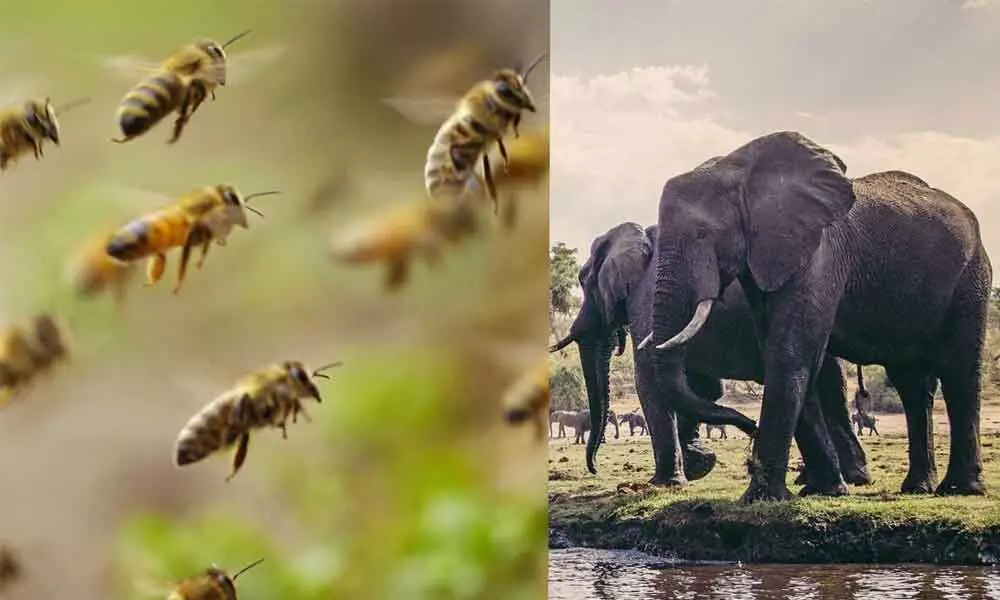Bees to challenge elephants!

Bees to challenge elephants!
Beehive boxes will be strategically placed on the periphery of forests and routes usually taken by elephants to enter human habitations
Bhubaneswar: In a bid to reduce man-elephant conflict, the Odisha government has decided to use honey bees to prevent the pachyderms from straying into human habitations, a senior forest official said on Tuesday.
Principal Chief Conservator of Forests (Wildlife) Sashi Paul said that the RE-HAB (Reducing Human-Elephant Attacks Using Bees) project will be launched in Athmallik Forest Division of Angul district in the first phase.
"Beehive boxes will be strategically placed on the periphery of forests and routes usually taken by elephants to enter human habitations. A wire will be tied to the boxes.
When the pachyderms pass through the routes and stamp on the wire, the honey bees will attack and drive them back into the forests," he said.
The joint project of the Forest and Environment Department and the Khadi and Village Industries Commission (KVIC) was conceived keeping in view the high number of fatalities in man-elephant conflict.
While over 900 people have been killed in elephant attacks in the last one decade, 282 pachyderms have died in only the last three years due to several factors including poaching, the official said.
Similar projects have succeeded in South Africa and other countries, and in states like Uttarakhand and Karnataka, he said. A meeting was organised with residents of three villages lying on the periphery of Athmallik forest and they are ready to cooperate with the government for the successful implementation of the project, the official said.
Paul said that human-elephant conflicts mostly happen during the harvest season from September-March and the project will be launched in this period. "The government will closely monitor and study the impact of the project on the elephants," he said.
The administration also plans to fit radio collars on specific marauding elephants that create nuisance in human habitations on the periphery of Chandaka Sanctuary, Badampahar Forest Range and Similipal National Park.















